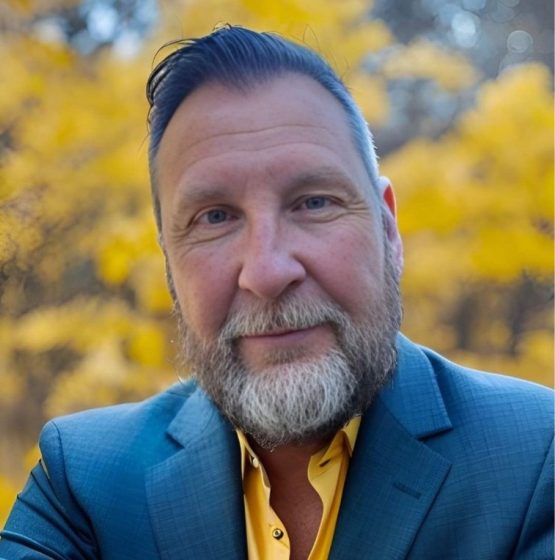
James Zeigler:
Leadership and Burnout
After decades of climbing the career ladder, James Zeigler found himself at the top of his game—and at the edge of losing it all. In his journey from near-death to recovery, James learned that true success requires balance, integrity, and a shift in how we handle stress.
Bio
James is a husband, father, grandfather, keynote speaker, author, and a friend to many.
He is a seasoned leader with over 35 years of experience in healthcare, specializing in
helping individuals achieve a harmonious blend of leadership and life through self-
awareness and the reduction of both internal and external bullying. His work focuses on
empowering people to build stronger, more effective relationships, both personally and
professionally, by enhancing their communication and listening skills.
Throughout his career, James has held significant leadership roles, including
owner/operator of a private speech-language pathology practice, assistant professor,
Chief Operating Officer, and Chief Executive Officer. He has managed organizations
with operating budgets of up to $800 million and led teams of over 4,000 Full-Time
Equivalent Employees (FTEE). A proud U.S. Air Force Veteran, James also served as a
Senior Executive Service Member in the Veterans Health Administration, where he
contributed to shaping policy and leadership within the federal government. He holds a
life appointment by the President of the United States of America.
As a keynote and inspirational speaker, James is passionate about guiding others to
discover their full potential. His mission is simple: to equip people with the confidence to “one another”, fostering kindness, collaboration, and respect. His vision is to reduce
bullying by coming alongside the accusatory voice within each of us and partnering,
paving the way for a safer, more compassionate world. James is also a certified
Professional Christian Leadership Coach trained by the Professional Christian Coaching
Institute and Coach Training Institute. Hot off the press in November 2024, James
released his book: Chemical Courage: Reframing the bully within for a healthier world.
In this book he carefully protects the identity of over 70 anonymous contributors who
shared stories of being bullied and gives a compelling message from a near death
experience of his own.
James is also an ordained minister, a budding author, and a lover of music. He enjoys
playing guitar and writing worship music, finding inspiration in the beauty of life, faith,
and service. He and his wife, Brenda have two grown children. They live in rural
Wisconsin, where they cherish time with their granddaughters and bird and squirrel
watching.
At his core, James believes that people are beautiful and have much to beheld—both
within themselves and in the relationships they cultivate. Through coaching, he helps
others discover this truth, enabling them to flourish with and for one another.
Topics
- The impact of childhood trauma on leadership and life.
- The role of stress in burnout and health crises.
- Why truth-telling and integrity are key to leadership.
- The importance of self-care and boundaries in high-stress roles.
- The dangers of “grinding” without balance.
- How to identify and manage your “inner bully.”
- The psychology of stress and its physical toll (cortisol and inflammation).
- The leadership lessons from military service and their application in civilian life.
- The transformation from executive burnout to self-discovery.
- The power of vulnerability and asking for help when needed.
Guiding Questions
- What was the traumatic experience you faced in kindergarten, and how did it shape you?
- You’ve mentioned the role of integrity in your life. Can you share a specific moment where that value guided you through a difficult time?
- How did your military service influence your leadership style?
- At what point did you realize that “the grind” was taking a physical and mental toll on you?
- You had a life-threatening experience with a pulmonary embolism. How did that change your perspective on leadership and work-life balance?
- What role did stress and cortisol play in your health crisis?
- You mentioned a “truth-teller” mentality. How does that influence your approach to leadership and coaching?
- What advice would you give to someone struggling with burnout in a leadership role?
- How did your relationship with your family change during your high-pressure career?
- Can you explain what you mean by “chemical courage” and how it relates to your personal story?